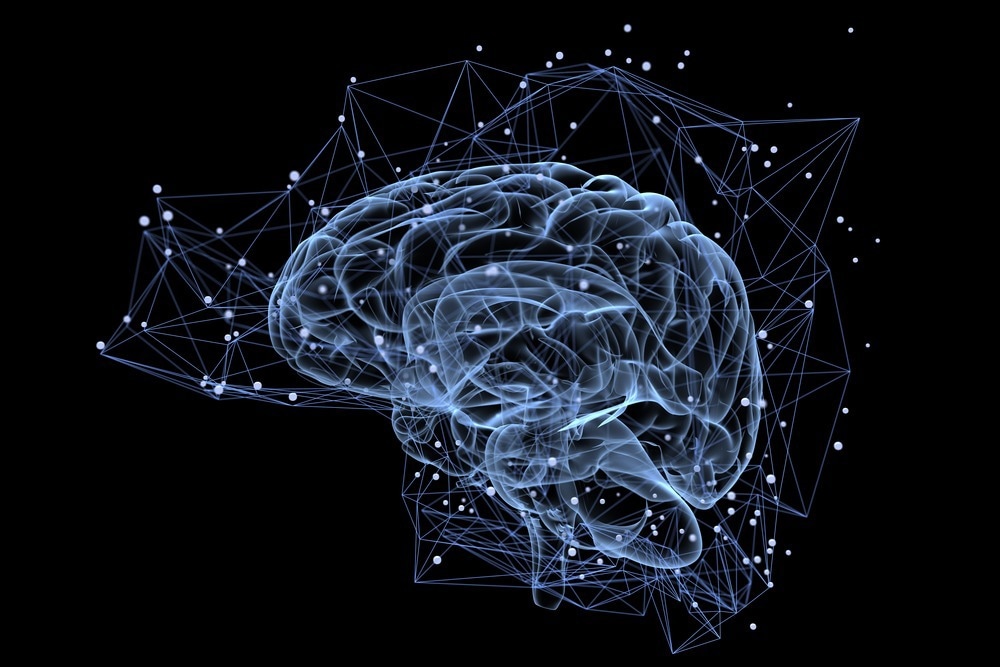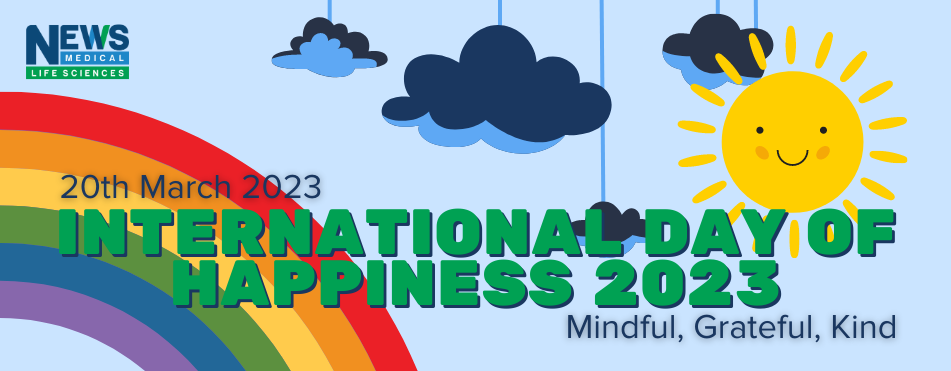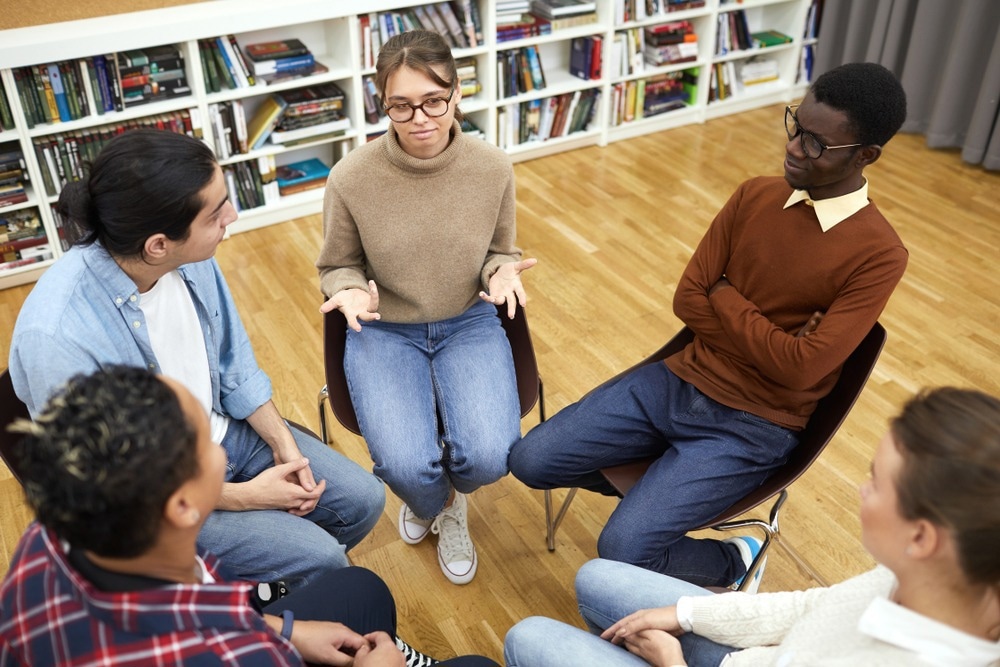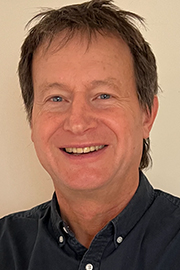My name's Bruce Hood, and I'm a Professor of Developmental Psychology and Society at the University of Bristol. My first degree was in psychology when I didn't even know what psychology was. I became fascinated and fell in love with it, so I decided to train as a psychologist.
As my undergraduate project, I'd done work on babies and was fascinated by the developing mind and how children grow into adults. I was fortunate to get a position at Cambridge working with a team, looking at visual development. Their approach was from a physiological point of view, which is the neuroscience aspect of my training. I studied the development of the eye movement system in very young babies.
What is chemically happening in our brains when we talk about feeling "happiness"?
Happiness isn't a single kind of mental state. It covers various things, from bliss and ecstatic feelings to a sense of contentment. Most people are familiar with the idea of there being neurotransmitters that are released. We talk about endogenous opioids, which are those neurotransmitters that generate feelings.

Image Credit: Tatiana Shepeleva/Shutterstock.com
Another neurotransmitter commonly discussed whenever you hear about happiness is dopamine, a very common neurotransmitter spread throughout the brain, but it's taken on this role as the pleasure chemical. Dopamine is part of the reward system. It is certainly involved in those positive experiences, but the research suggests it's more to do with wanting than liking. You can distinguish between those two types of behavior.
You can want something and not necessarily like it. Addiction is a classic example, where addicts will pursue or want something and not necessarily get the high they anticipate. So wanting and liking in the brain are different systems.
It's not the prevalence of a particular neurotransmitter or drug; rather, it's how they operate on the different systems, which better explains how pleasure and happiness work. Take opioids, for example. There are centers deep in the brain that we know that various recreational drugs act upon, but you only have to move a millimeter within the brain, and the effect of that drug is completely different.
How does happiness impact our health, both mental and physical?
We all experience happiness as a fluctuating daily state of mind. Some things make us unhappy, and some things make us happy. Interestingly, the research indicates that these mental states impact our physical well-being. We have known that intuitively, we don't feel up to our best physical self at times, which is often linked to our mood.

But the really interesting work is the long-term effects of being unhappy. There's now work coming out demonstrating that optimism impacts our longevity. A study published in 2019 looked at 70,000 people over approximately 40 years. The most optimistic lived longer, about 10 to 15%, in other words, eight to 10 years.
How do we change psychologically as we grow up, and how does it impact our happiness?
I think that development is the key to happiness. The biggest predictor of adult happiness is childhood happiness. It's really interesting because, in general, children are happier than adults.
As a child, you're blissfully unaware of many of the problems in the world, and you're the center of attention in most nurturing families. Most children are raised in a very egocentric world where they're the focus of attention. But with development, you get a development of identity and a development of self. So you have to become less egocentric to get on with other people.
I call that a shift towards being allocentric, which means you can see other people's perspectives. The problem is that when you start to be warier of what other people are thinking, that makes you very self-conscious. Children become increasingly anxious about their status and how they appear to others.
There is a shift from the young child who's been told they're great by their parents. As they move into adolescence, they're now comparing themselves to their peers. As they leave adolescents, they enter the world of adulthood, where competition is really important.
Young children are fairly insulated from negativity and criticism. But as they become more independent, that exposes them to many more negative views and thoughts.
There's a network in the brain called the default mode network. This is the brain circuitry that kicks into action when you're not focusing on a task. When your mind wanders, the default mode network becomes overly active and is associated with negative rumination.
Could you tell me about your course "The Science of Happiness"?
Six years ago, I decided I needed to do something about student well-being because they were more preoccupied with their marks than enjoying this period of life. By coincidence, a former student of mine who I had taught at Harvard, Laurie Santos, had put a course on at the time called Psychology in the Good Life, and it was all about positive psychology. Laurie and I collaborated to put together a course. The one I did is somewhat different from Laurie's but very much based on her approach.
Science Of Happiness and The Good Life
The course is very broad and open to first-year students who can take open units. As far as I'm aware, my course is entirely unique because students earn credit on our course, but there are no graded examinations. I did that because it felt hypocritical to lecture students about the dangers of examination stress and then give them an examination.

Image Credit: SeventyFour/Shutterstock.com
We've developed a course entirely based on engagement, so it's not just lectures. They have to turn up regularly. And they meet in small groups that we call happiness hubs, which are mentored by third-year students who we've trained to run small groups. In those groups, they do activities and things we recommend during the lectures. We also get them to do weekly journals and measure their happiness at the beginning and end of the course. That's how we've established that this course has a positive impact and benefits their own mental well-being.
What is the current state of student mental health?
I feel that we're not preparing students for university. The way that we educate is very much in a competitive way. When they hit university, which is very different from school because it's much more self-directed learning, it's much more independent. I think the students are struggling with that, the clash, and the transition to university. They want to do well, but they fail to realize that their efforts and perfectionism can be counterproductive.
It's much more important to train the next generations about how to deal with adversity and develop resilience. The world is unpredictable, and while learning content is all very well, it has to be done in a way conducive to well-being. I think that's missing at the moment.
Were there any surprising findings from the course that are easy for people to implement into day-to-day life to help improve their happiness?
There's nothing I am saying that hasn't been said before. But knowledge is not enough. You can watch as many TED Talks or read as many self-help books as possible. It won't make a difference unless you actively engage in it. You have to act. That's why our course is based on active engagement.
When we looked at the long-term benefits of our course, we found that, as a group, most of the students returned to their baseline measures again. So the benefits they had subsided, except those students stuck with the activities. About half of them continued to do the gratitude letters, meditations, and all these exercises.
It's like physical exercise; if you don't keep up with the program, you'll go back to your baseline again. Like a muscle, you will not suddenly become strong picking up the heaviest weight. It takes time, and it takes continual effort.
How do you believe we can create a happier and kinder world together?
I think the sorts of goals we set ourselves are somewhat misguided by commercial interest. We've got to understand that to get a balanced society, it works at the individual and societal levels. That means changing the way we look after each other.
What is next for you and your work?
I want to try and get Bristol to adopt other courses, which I think will empower students with life skills they can take into the world of work. For example, financial literacy, presenting skills, etc. I'm working on structures and strategies to get the university to make room in the curriculum for what I think are generic skills that we could all do with.
Where can readers find more information?
About Professor Bruce Hood
Bruce is Professor of Developmental Psychology in Society at Bristol University since 1999. He undertook his Ph.D. in neuroscience at Cambridge followed by appointments at University College London, MIT and a faculty professor at Harvard. He researches child development, origins of superstition, self-identity and ownership. For the past 5 years he has been concentrating on how to grow happier. Bruce is a Fellow of the American Psychological Society, the Royal Institution of Great Britain and the British Psychological Society. He gave the Royal Institution Christmas Lectures “Meet Your Brain” in 2011 broadcast on the BBC to over 4 million viewers. He also gave the Christmas Lectures on tours to Japan, China, Singapore, and South Korea. Bruce has written four popular science books published in 16 countries - SuperSense, The Self Illusion, The Domesticated Brain and Possessed. He has made numerous media appearances on radio and TV and featured in the 2019 award-winning eco-movie, “Living in the Future’s Past” with Academy Award winner, Jeff Bridges. Bruce has received numerous academic awards and honorary degrees for his services to popularizing science. He is currently working on his next popular science book about the science of happiness.
He undertook his Ph.D. in neuroscience at Cambridge followed by appointments at University College London, MIT and a faculty professor at Harvard. He researches child development, origins of superstition, self-identity and ownership. For the past 5 years he has been concentrating on how to grow happier. Bruce is a Fellow of the American Psychological Society, the Royal Institution of Great Britain and the British Psychological Society. He gave the Royal Institution Christmas Lectures “Meet Your Brain” in 2011 broadcast on the BBC to over 4 million viewers. He also gave the Christmas Lectures on tours to Japan, China, Singapore, and South Korea. Bruce has written four popular science books published in 16 countries - SuperSense, The Self Illusion, The Domesticated Brain and Possessed. He has made numerous media appearances on radio and TV and featured in the 2019 award-winning eco-movie, “Living in the Future’s Past” with Academy Award winner, Jeff Bridges. Bruce has received numerous academic awards and honorary degrees for his services to popularizing science. He is currently working on his next popular science book about the science of happiness.